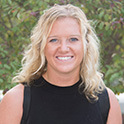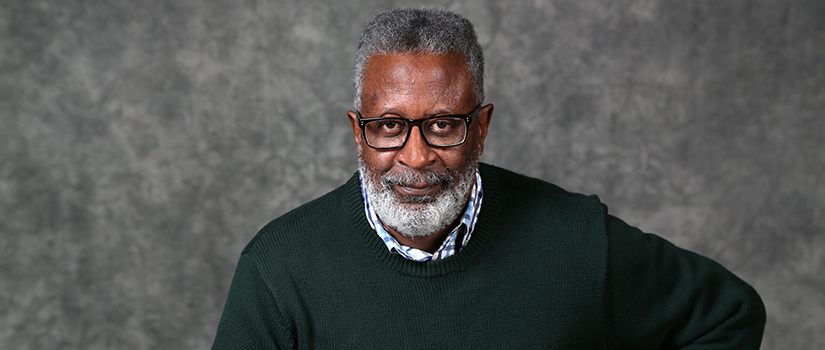Posted February 7, 2018
By Blaire Taylor, CIC Communications graduate assistant
When Dr. Kenneth Campbell got his start as a newspaper journalist, he realized there was something lacking
among his colleagues.
“When I looked around the newsroom, I did not see a lot of people like me and I certainly
did not see them in the upper levels,” Campbell says.
It was an observation that would spark his career, fuel his research, and eventually
earn him a Social Justice Award from the University of South Carolina.
From the start, Campbell knew he wanted to improve diversity within the media. But
he didn’t know how to do that until a former professor invited him to become a colleague
on the faculty at North Carolina A&T State University, a historically black university
in Greensboro, North Carolina.
“That African-American journalism professor made an impact on me,” Campbell says,
recalling the late Professor Luther P. Jackson of the Columbia University Graduate
School of Journalism. “And I saw a possibility to make an impact on others – not just
on African American students but on all students – and to teach them issues that they
need to be aware of in journalism as reporters, issues having to do with race.”
Campbell joined the USC School of Journalism and Mass Communications in 1988, becoming
the school’s first African American tenure track faculty member. He was involved with the
school’s Southeastern Multicultural Newspaper Workshop, a summer program which trained
minorities for jobs on newspapers. Although the workshop no longer exists due to funding,
he’s able to pursue his passion through courses such as minorities and women in the
media, which introduces students to issues they’ll eventually encounter on the job.
“I get the feeling that they are looking to learn to do the right thing. They don’t
want to use language that is offensive; they don’t want to say the wrong thing; and
they don’t want to think the wrong thing. Raising awareness of these issues in this
course has been a great success.”
Campbell’s research focuses on the media coverage of racial issues and African Americans,
as well as the historical portrayal of African Americans in the media. That interest
led him to help launch the J-school’s biennial Media and Civil Rights History Symposium
in 2011, which he now heads.
Teaching has allowed Campbell to apply research in the classroom. In January, students
in his undergraduate journalism history course listened to Dr. Martin Luther King
Jr.’s “I Have a Dream” speech.
“Many of them indicated that was the first time they had seen or heard the speech,”
Campbell says. “We talked about media coverage of the speech and how that played a
role in the civil rights movement.”
In addition to the work Campbell does to educate his students about race issues, he
also heads up the J-school’s new mass communications major, which was launched in
the fall of 2016. The major, created in response to industry changes, gives students
the chance to explore a variety of interests in mass media and related careers.
“We have had a number of students over the years who get to the point where they have
decided that their specific major is not for them,” says Campbell. “They wish to stay
in the J-school and in mass communications but have a different focus. This is what
this major allows them to do.”
The J-school offers four principles courses: advertising, public relations, journalism
and visual communications. While other J-school students are required to take only
the principles course for their major, mass communications students are required to
choose three, providing them with a broader understanding of the industry. Campbell
says this approach makes mass communications more about critical thinking than about
learning distinct skills, providing the perfect foundation for students interested
in law school, policy research, graduate school or pursuing a Ph.D.
When he’s not delving into research or teaching J-school students, Campbell finds
other ways to make an impact. He has edited several editions of “The State of Black
South Carolina” by the Columbia Urban League, and he also mentors young African American
males to guide them through the transition into adulthood.
Kenneth Campbell has dedicated his career – and his life – to making a difference.
In January, the University of South Carolina MLK Day planning committee honored him
with a 2018 Social Justice Award, which is given to individuals who exemplify the
philosophies of Martin Luther King Jr.
While Campbell knows that the work he’s done contributed to the committee’s decision
to give him the award, winning it still came as a shock.
“I was thankful, a bit surprised and very appreciative,” Campbell says.

Blaire Taylor
Blaire Taylor is a first year graduate communications student with an assistantship
in the web communications office of the college. She is working towards a career in
visual communications and public relations. Outside of school, she loves to travel
and explore.

